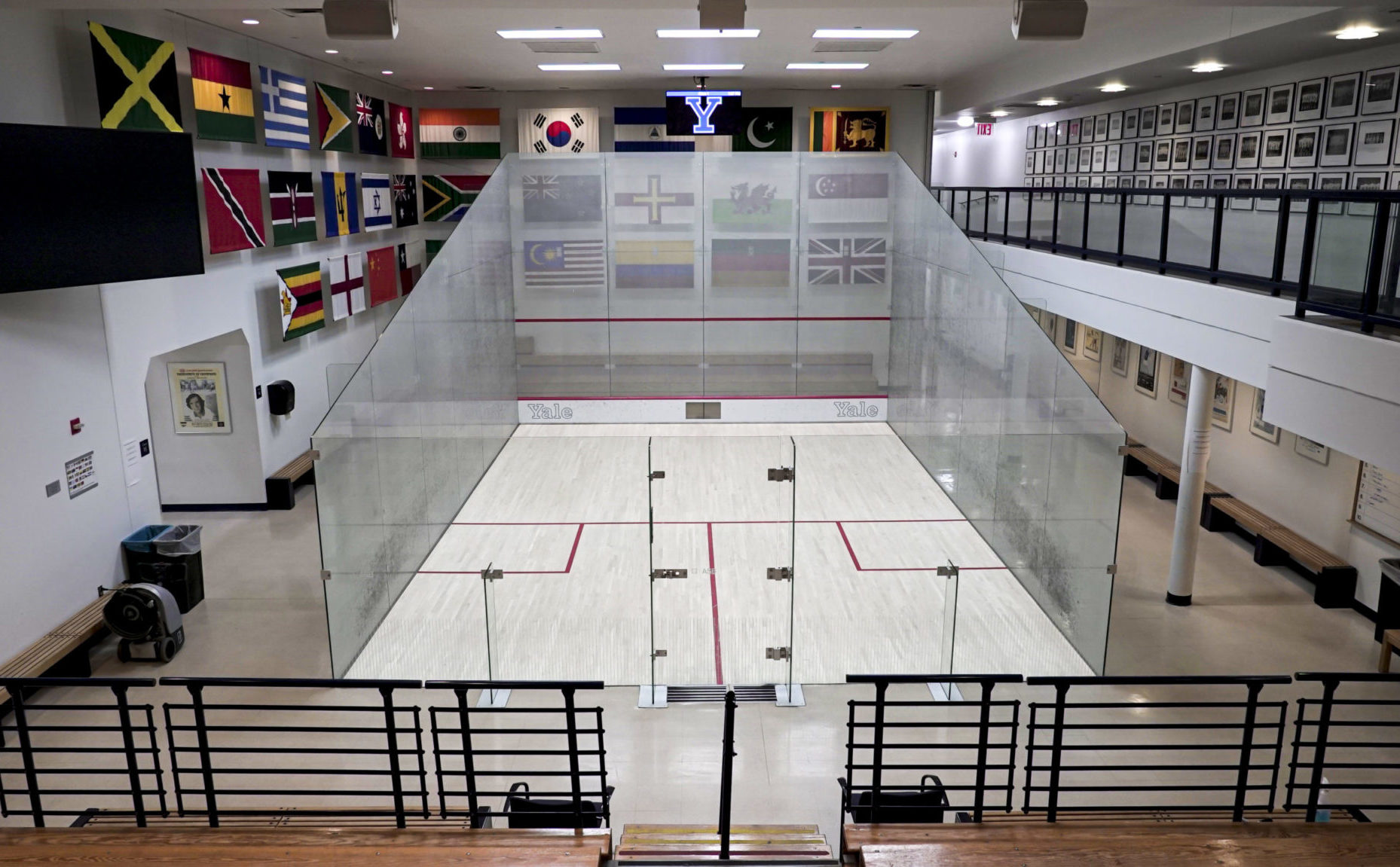Ivy League cancels all winter and spring sports in the 2020-21 academic year due to pandemic
The Ivy League Council of Presidents called off all season play for Bulldog athletes.

When the Ivy League canceled its basketball tournaments and all out-of-season practices on March 10, 2020, few anticipated the string of public health-related cancellations that would soon plague the 2019-20 and 2020-21 athletic years.
After a quiet fall sports season, the Ivy League Council of Presidents officially announced the cancellation of winter sports on Nov. 12, 2020, leaving the upcoming spring season’s prospects uncertain. After the Ivy League’s earlier announcement canceling all fall athletic programming on July 8, 2020, many had speculated that fall sports might be played in the spring. This announcement made it clear that this would not be a possibility.
With no fall sports, canceled winter sports, and the faltering possibility of spring sports, Yalies awaited a final decision to know whether any season play would run for the 2020-21 academic year.
“Throughout the last nine months, we have asked our campus communities to make extraordinary adjustments in order to do our part in combating the global pandemic and to safeguard the health and wellbeing of our students, faculty members, staff and the communities in which they live and work,” the Council of Presidents wrote in a joint statement at the time. “Regrettably, the current trends regarding transmission of the COVID-19 virus and subsequent protocols that must be put in place are impeding our strong desire to return to intercollegiate athletics competition in a safe manner.”
The escalating pandemic safety policies and regulations made many administrators and coaches doubtful that the regular 2020-21 athletic seasons would actually play out.
However, many spring athletes held out hope for spring athletics, as the late-year timing would allow for more opportunities to control and mitigate the risks of the pandemic.
“As spring student-athletes, we view the [later timing] of our season as a positive because it allows more time to get the virus in check across the country and ensure health and safety for us to be able to compete,” Yale baseball captain Cal Christofori ’21 told the News in November 2020. “Given how much our teams and sports mean to every student-athlete at the University, we continue to hold out hope we will get the opportunity to play this spring.”
On Feb. 18, 2021, however, the Ivy League announced its decision not to hold a spring sports season after the presidents of its constituent institutions unanimously voted to suspend all athletic events for the remainder of the year.
Just minutes before the Ivy League made its official announcement, all affected Yale athletes received an email from the Director of Athletics Vicky Chun confirming the cancellation of Ancient Eight spring sports competition for the 2021 season.
“As campus and community leaders, we believe that our public health responsibilities and educational principles preclude us from sponsoring Ivy League athletics competition this spring,” the eight Ivy League presidents wrote in a joint statement.
The announcement also stated that the conference would continue using the return-to-play athletic activity phases employed at the beginning of the 2020-21 academic year. According to Matt Panto, the associate executive director of strategic communications and external relations within the Ivy League, the athletic conference previously modified its phasing guidelines to establish a plan for rebooting athletic competition.
In the press release, the conference announced that the phased training guidelines would remain in place despite the cancellation of Ivy League competition, with entrance into Phase IV potentially allowing for non-conference competition at the discretion of individual schools.
The Council of Presidents added that such local competitions remained a possibility at Yale, should the status of local public health “substantially improve.”
The long-awaited decision regarding the fate of spring sports came a week after an exception to the Ivy League’s long-standing eligibility policies, where a one-time waiver was granted to allow graduating seniors the chance to compete with their teams as graduate students, under the stipulation that they earned acceptance into a degree-granting graduate program at their current institutions the following year.
Regardless of whether fall and winter sport student-athletes enrolled as undergraduates for the terms in which their sports were canceled, they would no longer lose a season of NCAA eligibility.
Before the pandemic, the Ivy League was the only Division I league that did not permit medical redshirts or any other fifth-year students to undertake their fourth year of NCAA eligibility.
However, the policy change garnered mixed reactions, most immediately from the ill-timed notification, which fell after application deadlines to more than 50 of Yale’s graduate programs.
Yale baseball alumnus Benny Wanger ’19, who had previously vocalized his frustration with the Ivy League’s decision-making processes, told the News in February 2021 that this decision was “a result of poor leadership.”
“It’s sad, but not surprising to anyone,” Wanger said. “Since this was clearly a preset decision — COVID-19 rates are dropping dramatically — presidents should’ve made this announcement back in December to help their student-athletes make future plans. If I were a current Ivy student-athlete I would feel totally betrayed by the administration. This decision is going to impact the Ivy League negatively for years to come.”
As public health conditions improved and the Yale student body transitioned back onto campus for the 2021-22 academic year, the Fall 2021 season brought all 25 varsity teams together again, with practices in full swing and competitions carried out as scheduled.






